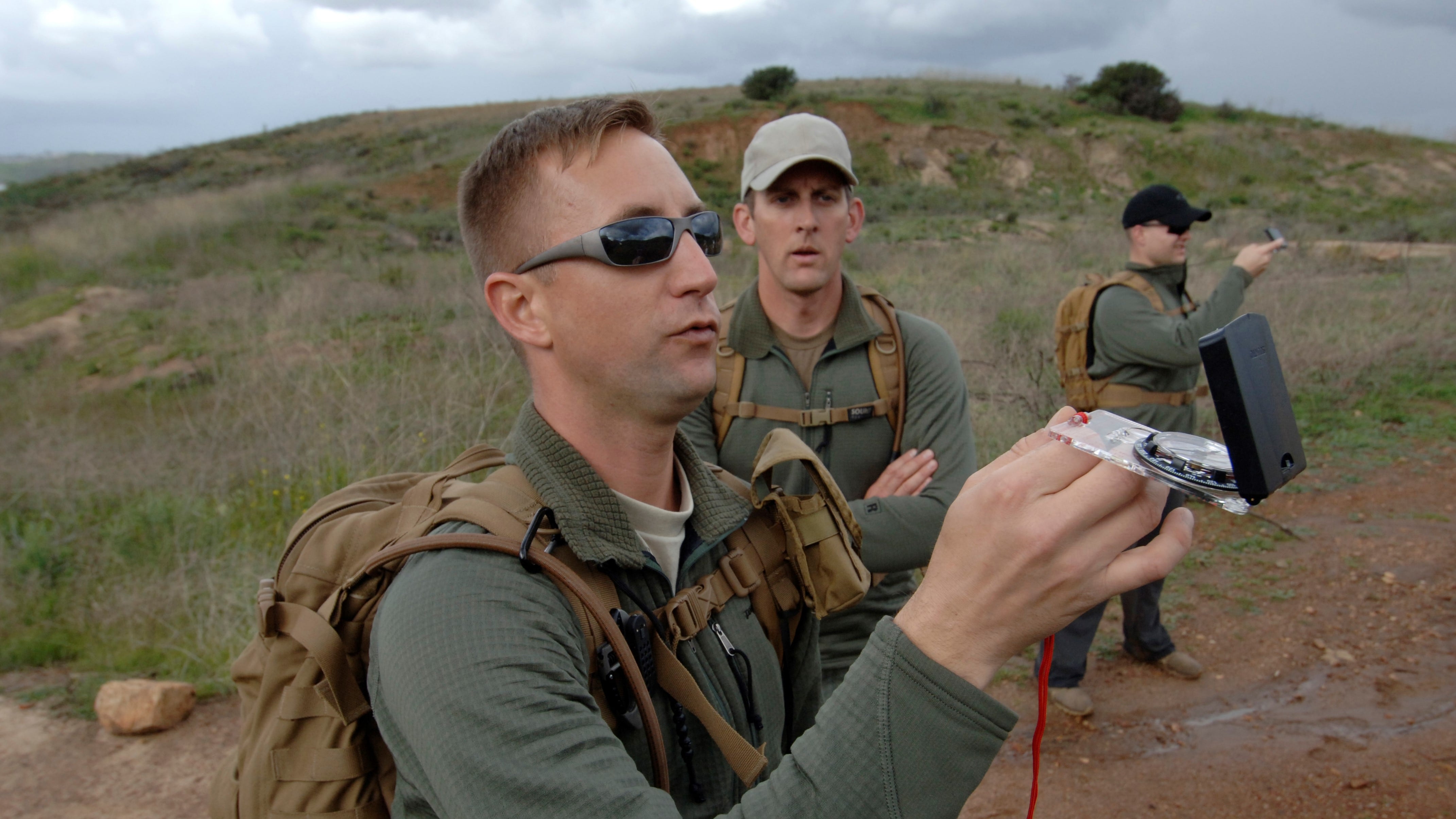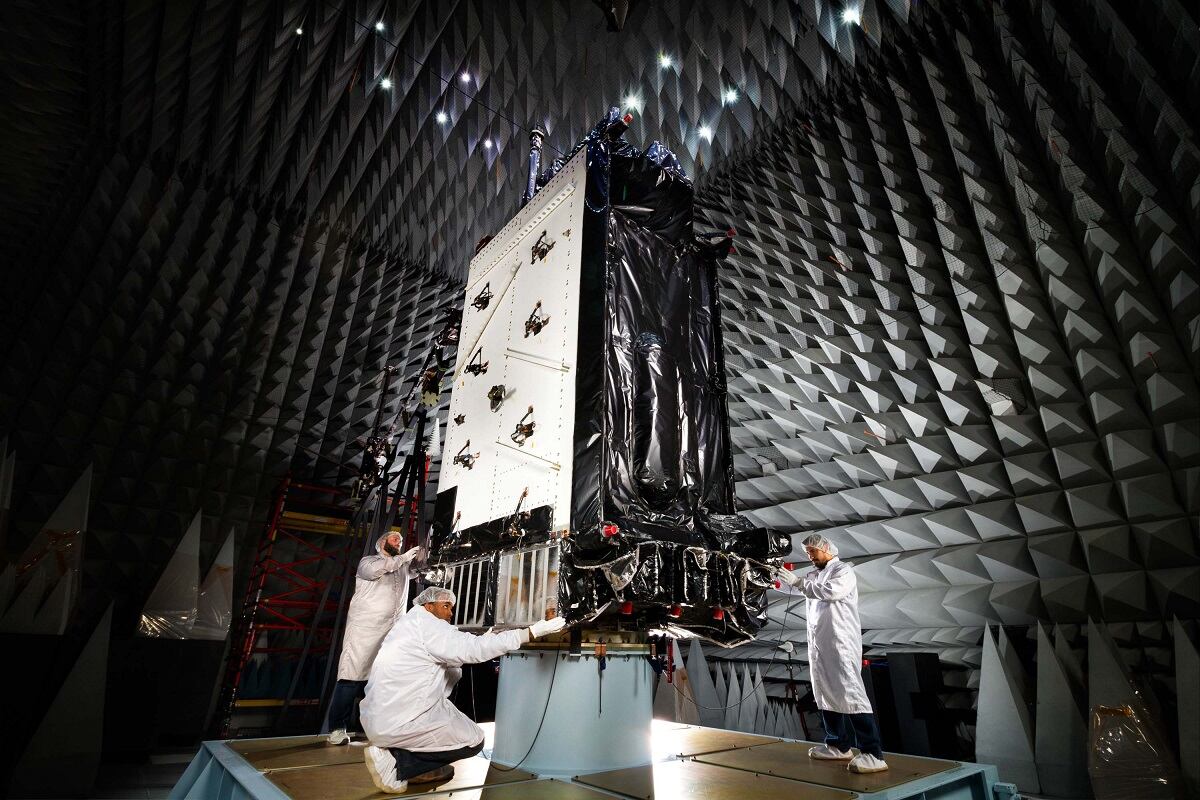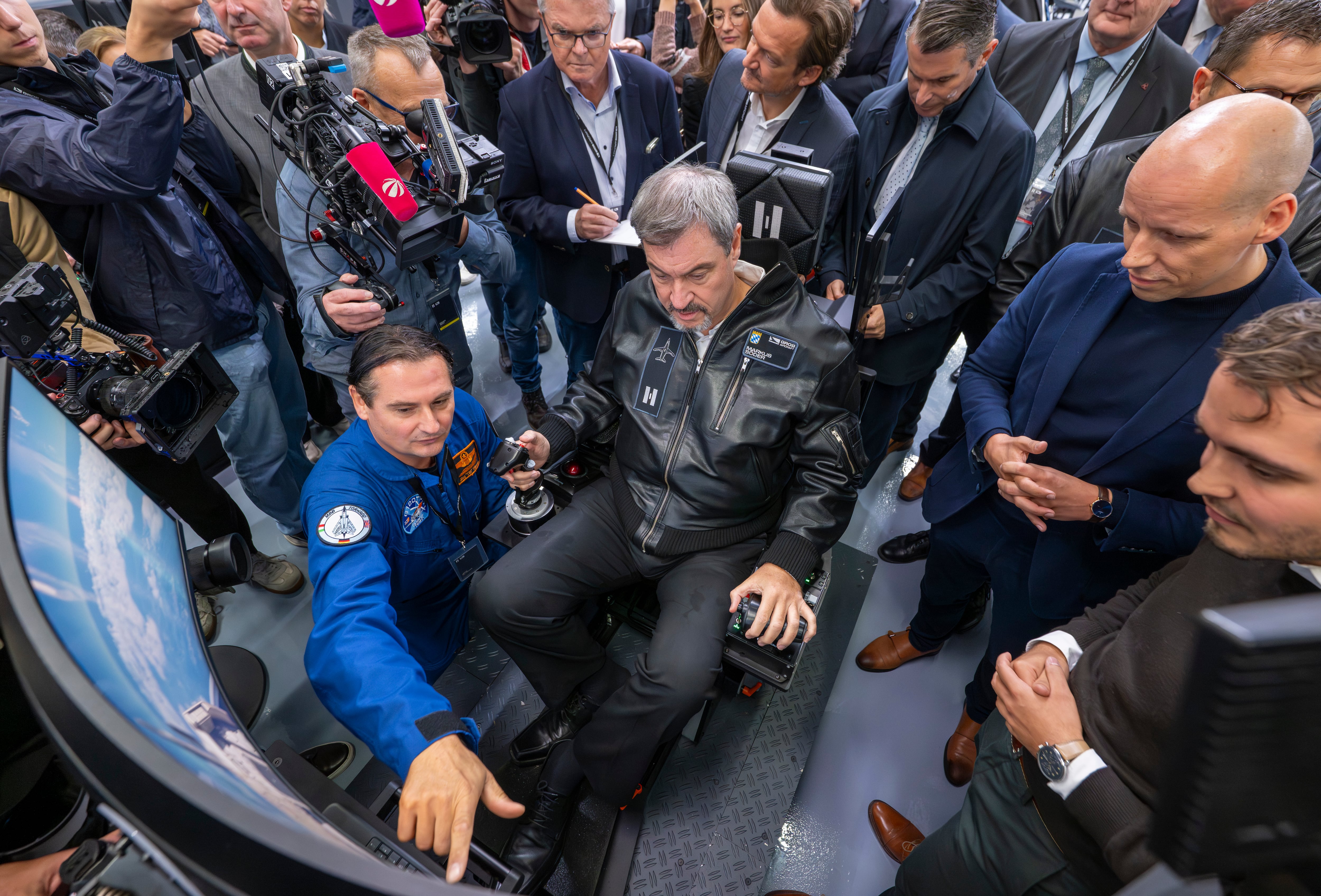This story was updated 5/27/20 with new comment from Turner and Inhofe. The original story was published 5/22/20.
The same day they hosted a closed-door briefing by both the Department of Defense and the Federal Communications Commission, leaders of the House Armed Services Committee formally asked the FCC to hit pause on its approval of spectrum use by Ligado Networks — and questioned why the commission appeared to not take into account classified information provided to them from the defense department.
In a letter to FCC Secretary Marlene Dortch, obtained by C4ISRNET, HASC Chairman Adam Smith, D-Wash., and ranking member Mac Thornberry, R-Texas, state that there are “still too many unknown impacts and remaining concerns” to move forward with the Ligado plan, which the DoD and other government entities have claimed will create interference with GPS capabilities over the continental United States, harming military use and the economic benefits from the system.
“The public and affected agencies cannot have confidence in the commission’s decision without resolution of these errors through a reconsideration and the implementation of additional safeguards acceptable to the GPS user community. Suspending the order and a full reconsideration of the proceeding is in the public interest,” the members concluded.
On April 20, the FCC unanimously voted to move forward with the request by Ligado to use part of the L-band spectrum. Since then, members of both the Senate and House Armed Services committees have led a rear-guard action, trying to get the order reversed or, at least, slowed down.
RELATED

The DoD has opposed the FCC’s decision, claiming it would cause too much interference for the GPS system. Ligado’s case rests on the argument that the Pentagon’s testing does not accurately capture the mitigation plan the company has developed over the years. The firm also argues there is no proof that interference will be an issue.
The HASC leaders now join a bipartisan group of 32 senators in urging a reversal of the FCC decision. While the FCC is overseen by the Commerce committees, not the defense authorizers, six of the senators who signed the May 14 letter to the FCC serve on the Commerce, Science and Transportation Committee, and the defense leaders will likely have influence in internal discussions moving forward.
On May 8, 22 HASC members, including Smith and Thornberry, wrote to the FCC demanding answers about the technical analysis performed by the commission. Both men also signed a previous op-ed published by C4ISRNET with their Senate counterparts.
As part of that May 8 letter, the lawmakers requested copies of “the legal analysis that led the commissioners to their determination despite the unanimous concerns of the national security community,” as well as information on whether commissioners received a briefing from the DoD on the “classified test data contained in the classified report of DoD testing” included in a 2018 testing report.
The most recent letter, dated May 21, makes it clear that only some of the FCC commissioner offices responded to that request, and that those responses raised concerns for the HASC leaders. The letter was sent after the May 21 remote call-in.
On the question of the legal analysis, “the commission relied largely on assertions made by Ligado in arriving at their decision, disregarding the collective objection of 14 federal agencies and departments, testing by the Department of Defense and the Department of Transportation, and the countless other ex parte filings in the record of proceedings,” Smith and Thornberry wrote.
“In fact, at least one GPS device manufacturer alleges that Ligado misrepresented the nature of an agreement that was reached between the two parties, and that, despite Ligado’s repeated assertion, no ‘co-existence agreement’ exists. This misrepresentation, if true, could call into question the facts upon which this decision was based,” they added.
RELATED

As to the question of the classified briefing, the lawmakers stated: “None of the responding commissioners were aware of the classified information the DoD provided to the commission. As a result, the commission failed to consider material information that may have fundamentally altered their decision.”
“Given the sensitive issues involved in this decision, much of the relevant information from the DoD is classified. Therefore, a thorough review of classified materials submitted by the DoD is an essential step prior to making a decision,” the lawmakers said.
Along similar lines, the two added that because of the classified nature of military bases and technology, it’s “highly likely neither the commission nor Ligado have a complete understanding of the costs and complexity involved to ensure the safety of operations of military equipment that cost the taxpayers hundreds of billions of dollars. The expense and time required to confirm or deny interference would be an unacceptable distraction from the Department’s mission and could be a significant imposition on DOD operations.”
That last point hits at a core defense of Ligado — that the company has offered to set up a system where it can fix any issues with GPS receivers that pop up for the department. Opponents of Ligado’s plan have argued that solution, which involves the Pentagon calling a 1-800 phone number to report issues, shows a lack of understanding of both the oft-classified nature of operations and the complexity of military technology.
In a statement released on May 27, Rep. Mike Turner, R-Ohio., the ranking member on the strategic forces subcommittee, said he was "concerned when I asked the FCC officials on the call if they had convinced any other agency this was good policy or if they had made an attempt to receive a classified briefing on the effects of their decision and their answer was no.”
Senate Armed Services Committee chairman Sen. Jim Inhofe, R-Okla., added that he was “disappointed but not surprised to hear the FCC has made no effort to review necessary, classified materials related to the Ligado application.” Inhofe has been a leading critic of the FCC’s decision.
While both the HASC and SASC leaders have publicly worked the issue, industry groups have also rallied in opposition to the Ligado deal. More than a dozen industry groups and businesses announced May 21 they would file a petition for reconsideration of the FCC’s recent decision to allow Ligado to operate in a spectrum near the Global Positioning System.
With the filings, the industry groups would essentially slow the approval process by forcing a formal review of the FCC’s unanimous decision.
Notably, the petitioners include Iridium, whose satellite services are used by the DoD, and Lockheed Martin, which has built several generations of the U.S. Air Force’s GPS satellites.
In a May 21 news release, Matt Desch, the chief executive of Iridium said: “The FCC’s Ligado action prioritizes economic windfalls to a few speculators over safety of life, national security and important private sector companies whose customers would be most upended by their harmful interference.”
Other petitioners are expected to include the Airline Pilots Association, the Association of Equipment Manufacturers, the Cargo Airline Association, the International Air Transport Association, Airlines for America, Trimble, and the Resilient Navigation and Timing Foundation.
Aaron Mehta was deputy editor and senior Pentagon correspondent for Defense News, covering policy, strategy and acquisition at the highest levels of the Defense Department and its international partners.
Mike Gruss served as the editor-in-chief of Sightline Media Group's stable of news outlets, which includes Army Times, Air Force Times, C4ISRNET, Defense News, Federal Times, Marine Corps, Military Times and Navy Times.








